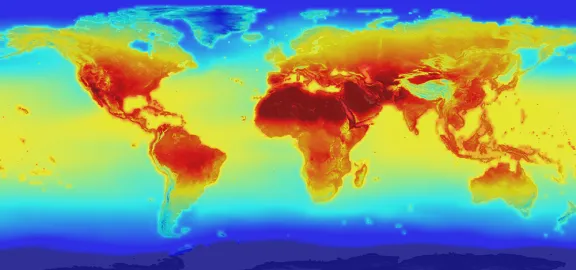
Universities Join Forces Over Climate Change
Universities may only make up three percent of the nation’s energy usage, but their influential position in society could make a major difference when it comes to climate change. With the current government refusing to take the reins, there is a leadership vacuum in climate change policy. Responsibility has fallen to institutions of higher education to provide a transparent, evidence-based approach to dealing with the changing world.
After the United States withdrew from participation in the Paris Climate accord last year, California promised to pursue the original targets in the agreement without federal backing. This month, at the Higher Education Climate Leadership Summit held Feb. 4 to 6 in in Tempe, Arizona, UC President Janet Napolitano announced the University of California system intended to actively follow suit.
In the midst of political chaos surrounding climate action policy, 13 universities from Canada, the United States, and Mexico are forming a partnership — dubbed the University Climate Change Coalition, or UC3 — dedicated to enacting such policy at their institutions.
This is the largest university-lead alliance yet formed and represents a significant shift in how these universities view their role in promoting sustainability practices.
The coalition is designed to “work with local institutions, government, and climate professionals to help develop research based tools and action plans for community development,” said Napolitano at UC3’s unveiling.
There is growing public urgency regarding climate action as recent fire, flood, and hurricane seasons have become longer and deadlier. Previously, each university acting alone was too isolated to generate any real expertise, said Arizona State University President Michael Crow.
“We were arguing in our own little fiefdoms,” he said.
It was clear to the signatories that a consensus needed to be formed.
A central tenet of UC3’s action plan is “place-based climate action.” Climate change will come to affect every individual on the planet, but each region will likely see unique challenges. Needs will be different in Florida or Texas, as these states deal with increased flooding, than in the Southwest, where lengthier droughts will strain water resources.
Each university therefore intends to tackle these issues on a community level, then translate their findings to other coalition members to ensure the faster spread of successful policy. The first major goal slated for this year includes a comprehensive framework for recommended action at each campus.
As a result of the U.S. government’s inaction, fundraising methods for this initiative will need to become creative, pivoting sharply from the established norm. Since World War II, universities have become reliant on a funding model largely dependent on federal money. The UC3 leaders understand that they are unlikely to receive increased government support for anything associated with climate change in the near future, so are looking in other directions to enact their vision.
“We need philanthropies, individuals, cities, towns, nonprofits all coming together to try to find solutions,” Crow said. “If we only end up at the end of this with public money, we failed. The model of raising taxes to solve this issue is done.”
Eventually, the presidents hope to see the foundations of a global network emerging. Lessons learned by the founding UC3 members will be communicated as transparently as possible. Hopefully, this coalition can serve as a model and database for organizations around the world as they begin to implement their own policies.
The most important outcome of the UC3 initiative may not be the sustainability policies themselves, but the creation of a unity of purpose to inspire collective action across diverse communities.
Nicholas Gentry is a 2nd year Biomedical Sciences Phd Student. He works in Dr Ying-Hui Fu’s lab studying the relationship between sleep, aging, and neurodegeneration.



